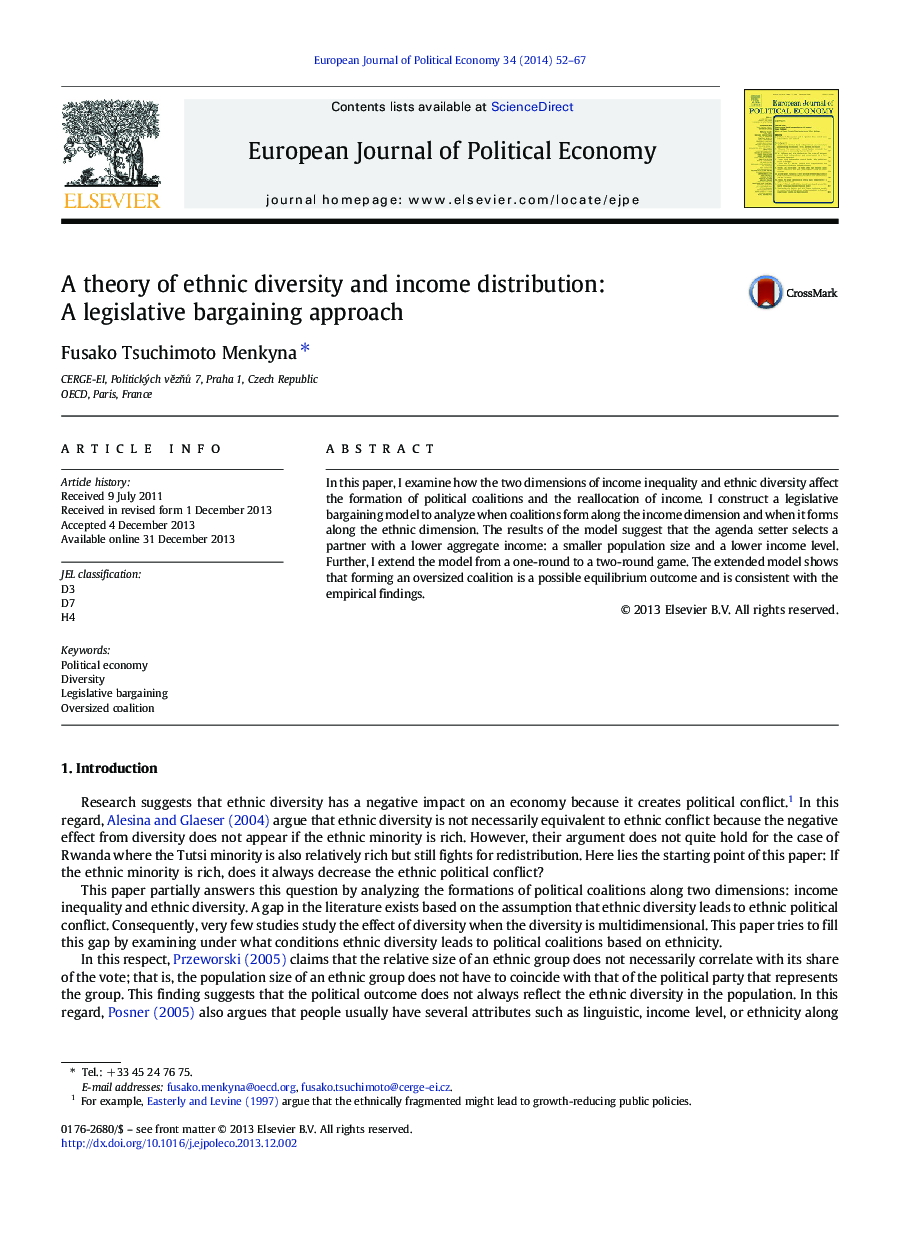| Article ID | Journal | Published Year | Pages | File Type |
|---|---|---|---|---|
| 5068091 | European Journal of Political Economy | 2014 | 16 Pages |
â¢Legislative bargaining model is constructed to analyze political coalition formation.â¢The paper brings empirical testable findings.â¢First, ethnic political coalitions can be seen mostly in the poorest countries.â¢Second, ethnic coalitions are likely to be formed when each ethnic group is small in population size.â¢Explains the mechanism of oversized coalition.
In this paper, I examine how the two dimensions of income inequality and ethnic diversity affect the formation of political coalitions and the reallocation of income. I construct a legislative bargaining model to analyze when coalitions form along the income dimension and when it forms along the ethnic dimension. The results of the model suggest that the agenda setter selects a partner with a lower aggregate income: a smaller population size and a lower income level. Further, I extend the model from a one-round to a two-round game. The extended model shows that forming an oversized coalition is a possible equilibrium outcome and is consistent with the empirical findings.
